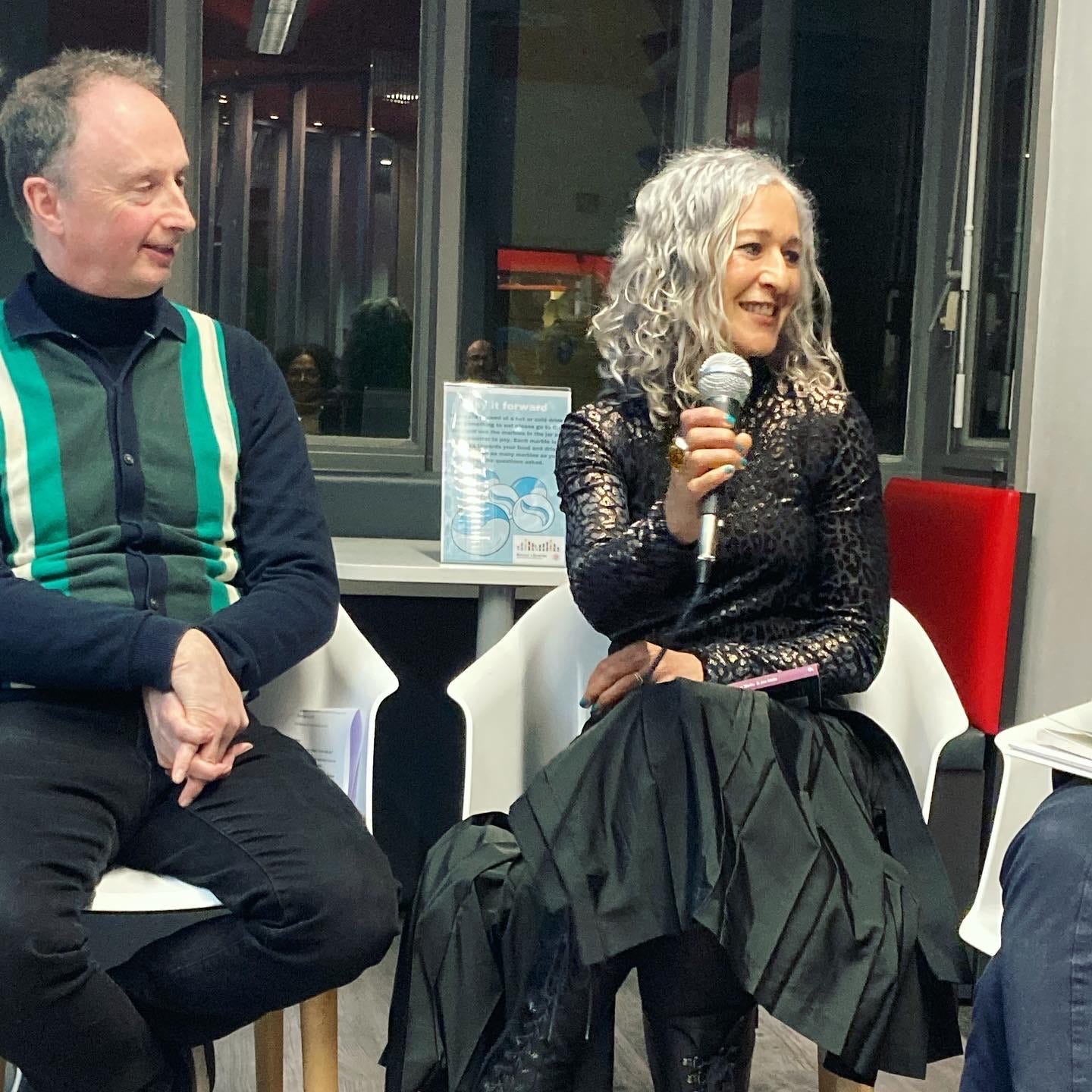The Truth About Bristol: Living in a Divided City Inspired a Prize-winning Story
A divided city led to a story of division.
“The flat smells strange. It smells of bleach… But nothing can get rid of blood.”
The Divide
I’ve lived in or just outside Bristol for most of my adult life. I love this city, with its arcs of candy-coloured houses, two rivers winding through its watery heart, gleaming spires of honey-coloured buildings and sailing masts, hidden green gems, such as Brandon Hill, and the way you can see right to the very edge where the fields begin. Its music scene. Its art scene. Bucket-loads of coffee shops and the coolest independent shops selling cakes and clothes. But what struck me when I first arrived, fresh from the north, was how divided the city was. Back then in the late eighties, St Pauls, mostly populated by the descendants of Afro-Caribbeans, was thought lawless (it was not long after the riots) even though it was full of the same gentrified buildings as Clifton, a wealthy and mostly white region; no one mentioned that the beautiful architecture and the elegant squares and the balconied town houses were all built on the back of the slave trade.
So when my friend, Joe Melia, who runs the Bristol Short Story Prize, asked me to contribute to The Book of Bristol, a collection of short stories written by Bristol-based writers, which he was editing, I immediately thought about how divided Bristol still is today, over thirty years later. This is a city where people live so near each other and yet are still largely segregated according to race and money. I thought that instead of tackling the slave trade (now finally discussed after the toppling of Edward Colston’s statue) directly, I would do it tangentially. So I made my main character, Matthew, a young Bristolian, whose Dad was from Wales and whose mother was one of the Windrush generation. Being deported killed her, according to Matthew.
And I also wanted to include another (in)famous legacy - that of Isambard Kingdom Brunel, the engineer who designed the Clifton Suspension Bridge. I made Matthew a personal trainer at a gym in St Pauls, whilst training to be an engineer.
“He turns and looks across at the Suspension Bridge, slung, like an engineer’s dream, across the chasm of the Avon Gorge. The bridge is suspended from cables between twin towers – from his reading he knows it spans a distance of 214 metres, weighs 1,500 tonnes, and was begun in 1831. Impressive, he thinks. Built for horses and carts and now carries four million cars a year.”
The Divide
I’m a psychological thriller writer, so I needed a decent plot. I dug up an idea I’d had for a novel. No spoilers but the thing that is done to Matthew, is normally done to women and I wondered if I could make it work the other way around, coupled with all the suspicion that might befall a young black man with a white girlfriend who has gone missing, and who has no money and no family to protect him.
The Divide is about a young man whose girlfriend has gone missing…only no one believes his story; no one believes he is innocent. But the truth cannot be hidden for ever…
“Who needs evidence when you have a young black man with a murdered girlfriend, who claims another white woman is missing, and the one person who vouched for him is in a graveyard he’s never visited, in a country he’s never been to?”
The Divide
I absolutely loved writing The Divide, in spite of its darkness. When I was transitioning from being a literary and a historical writer to writing thrillers, I had to change my writing style. I became leaner, less descriptive, definitely less flowery and every day I looked at my work, I cut out more words. Often I write in the first person, from the point of view of my main character, and I try and encompass their voice, so sometimes that means the writing is more colloquial, the syntax less syntactically perfect. With a short story (and Joe at the helm) I felt freer to flex my style. The result is a kind of cross between my more formal former literary tone, combined with a close third person from Matthew’s point of view (If you have no idea what I’m talking about but would like to find out, do subscribe as I’ll be going into all this in The Process on the craft of writing - and it took writing several books to understand it myself.)
“Two boys had spotted her, when they’d dropped their BMXs on the verge and were balancing on the top. There were more sea gulls than usual and they threw cans at them. Until, that is, one of them saw her hand, half-submerged in the silt, and thought, at first, it was a mannequin’s. But then he caught sight of her face. Emerald-green water weed had wrapped itself round her throat, which is why, to begin with, they also did not notice the necklace of dark maroon and livid yellow bruises.”
The Divide
The book launch earlier this year was a joy. For a start, it was in Bristol Central Library, I did not have to organise it and agonise if no one turned up, there was wine, my daughter came, and even better, there were numerous other authors on stage with whom to share the nerves. One of the writers couldn’t be there. Helen Dunmore died aged 64 in 2017 of cancer. I loved the first half of her last novel, Birdcage Walk, also set in Bristol, and her estate allowed the inclusion of a short story in our anthology: A View from the Observatory, about an incident that happened in the past and for which the main character still feels culpable for.
“The daytime face of the Downs was peeled away like a mask. The sunbathers and kite-flyers and joggers and ice cream vans were gone, and something else was here.”
A View from the Observatory by Helen Dunmore
Listening to the other writers talk about their stories and read from them really brought them to life: Valda Jackson’s Team Player, reflecting the racism she’d experienced when she first came to Bristol; Going Down Brean as acted out by Rebecca Watts became hysterically funny; Baker’s Zodiac by Christopher Fielden was funny already and now became poignant in his tale of two elderly witches, and we had a bewitching glimpse of a Somali folk tale of merpeople in Bristol’s harbour in The Water Bearer by Asmaa Jama.
I do hope you enjoy The Divide - it was an honour to be included in this collection, which is available here.
Sanjida x
Update!! The Divide has WON a Crime Writers’ Association Dagger!






